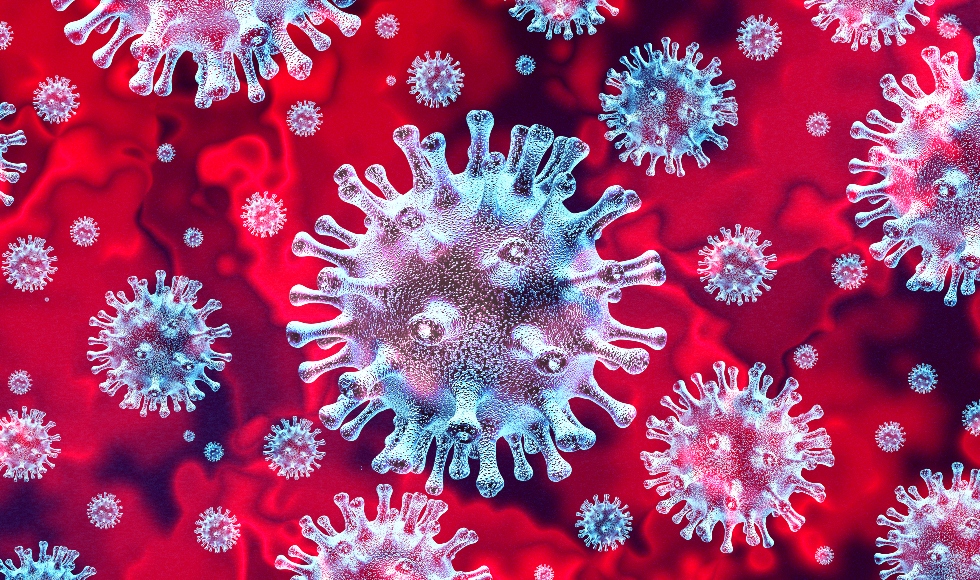Explaining the coronavirus

BY Michelle Donovan
January 24, 2020
Update: Since this interview was conducted, cases of coronavirus have been reported in Canada. For the most recent numbers, please go to the Public Health Agency of Canada’s website.
The coronavirus that originated in Wuhan, China has reached North America and continues to spread, causing apprehension about where it may appear next and how many it will sicken or kill.
 The virus is generating concern and drawing comparisons to the SARS outbreak, which spread through a coronavirus in 2003. Health authorities all over the world will be watching its possible spread as millions gather, celebrate and travel during Lunar New Year festivities.
The virus is generating concern and drawing comparisons to the SARS outbreak, which spread through a coronavirus in 2003. Health authorities all over the world will be watching its possible spread as millions gather, celebrate and travel during Lunar New Year festivities.
We asked Matthew Miller, an associate professor of Biochemistry and Biomedical Sciences, who works with the McMaster Immunology Research Centre and McMaster’s Institute for Infectious Disease Research, about the nature of the virus and whether or not Canadians should be worried.
Miller is an expert on the mechanics of viruses and how they interact with hosts. Below is a condensed version of the interview.
What is the nature of the coronavirus?
Coronaviruses are actually a common family of viruses and in humans they typically cause infections that we would call the common cold. There are many coronaviruses that naturally infect humans and probably everyone who is an adult has been infected by human coronaviruses multiple times.
There are also coronaviruses that specifically infect animals, and sometimes those animal viruses can jump into humans and cause new infections, which occurred during the SARS outbreak and is what appears to be occurring now with this new Wuhan-based coronavirus.
How is this virus different from a common cold?
When viruses jump from animals to humans, they can initially cause more severe infection. Viruses don’t want to kill people or make them really sick because they need people to be alive to transmit. All viruses care about is continuing to be able to replicate and persist.
When a virus jumps from an animal to a person, it basically doesn’t know how to deal with the human body very well and as a consequence it can sometimes make people much more sick than a virus that is a bona fide human virus.
It’s still too early to tell because the numbers are still relatively low, we still don’t really understand in detail whether this is more severe than the standard coronaviruses we deal with seasonally.
Should we be worried about the coronavirus?
At this point I don’t think we should be worried. Both the WHO and health authorities in Canada are hopeful that the spread of this virus is limited. The Chinese authorities have taken a lot of active measures to try to prevent the spread.
That doesn’t mean that in several weeks the situation won’t change. It’s very, very fluid in the early days of an outbreak, so I think it’s too early to tell. But in the moment, I don’t think there is any reason for Canadians to be disproportionately worried.

Is Canada ready for the arrival of this virus if and when it happens?
The unfortunate reality of these new virus outbreaks is that we don’t have a vaccine to protect us against this virus and we don’t really have great drugs to treat against this infection.
Nevertheless, Canada learned some really important lessons during the SARS outbreak which was also caused by a coronavirus. Relative to almost any other country in the world, Canada is as well prepared as you could be, given the limitations in vaccines and drugs to respond to this virus.
We also have the added benefit that contrary to what occurred during the SARS outbreak there is now a definitive diagnostic test that Canadian hospitals can employ if there is a suspected case of this new coronavirus to determine definitively if someone is infected with that or some other common virus that circulates at this time of year. And that will really facilitate our ability to identify people who are infected and then isolate them appropriately to prevent spread.
How close are we to developing a vaccine?
I don’t think a vaccine is terribly close. There are a lot of laboratories around the world that have already started scrambling to try to make a vaccine. But the reality is that vaccine will first have to be tested in model systems, like animal models. It will then need to advance to clinical trials.
Were this to turn into a real pandemic, it’s unlikely that we would be able to deploy a vaccine in time for the first wave of the pandemic. That doesn’t mean that a vaccine isn’t going to be useful or important, because it’s still too early to really tell what this virus is going to do, but in the immediate term, we’re looking at years, not weeks or months.
What is your message to people who might be deeply concerned about this virus?
I think the message is ‘don’t panic.’ The good news is that health authorities both in Canada and around the world are very aware that this outbreak is happening, and they are poised to respond.
The other promising news is based on the early numbers we’re getting on sicknesses, deaths and the severity of illness – although this virus is very new—there is nothing to say convincingly that it is going to be a lot worse than other viruses like the flu that we experience every year.


